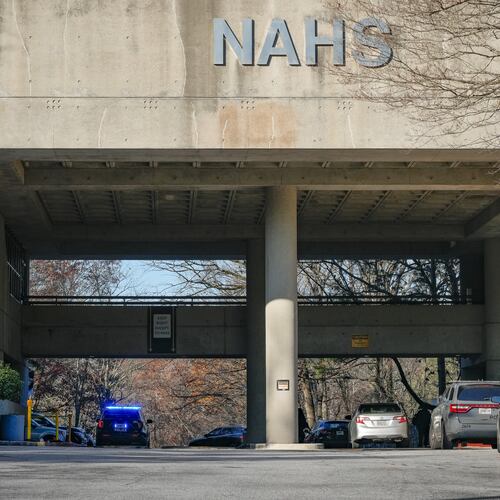Ron Anderson joined Suwanee’s Citizen’s Police Academy for two reasons: to get a behind-the-scenes look at how police serve the community and to gain more insight for his family members, who he says have been affected by movements to defund the police.
“Instead of just trying to sway them with my opinion, I wanted to come here and actually learn facts about the challenges that the police are facing and how they’re overcoming them,” the 53-year-old father said.
Some family members believe police officers use their power incorrectly and police based on officers’ biases, he said.
Anderson is one of many area residents looking to familiarize themselves with police procedures and tactics at classes conducted by police departments across metro Atlanta. Police hold the free classes to educate citizens and encourage better communication between the public and police departments.
Last Monday, Suwanee’s Citizen’s Police Academy welcomed its first class of 2022. The department has only had one other class since 2019 due to the COVID-19 pandemic.
“We learn from the students and the students learn from us, hopefully,” said Lt. Bryan Hickey, leader of the program, which is now offered twice a year.
The academy serves not only as a place where citizens can learn more about the role of an officer but also as a bridge between the department and the community.
During the seven-week program, participants meet every Monday and take part in hands-on instruction, learning about traffic stops, DUI detection, use of force, and active shooter situations. Participants can also join an officer on a ride-along during their shift. The group will meet for about 21 hours throughout the program, not including the ride-along. Hickey estimates that the program is costing the department about $700.
Credit: Courtesy of: Suwanee Police Department
Credit: Courtesy of: Suwanee Police Department
The Atlanta Journal-Constitution spoke with participants in the academy, who are all looking forward to getting a better understanding of an officer’s role in their community.
Peter Charpentier, 60, joined the program because he has respect for the police and wanted to learn more about the department.
“I think about what it would be like if we didn’t have police and how we take our freedoms for granted,” Charpentier said. “And I, just out of respect, wanted to learn more about what the police do.”
Charpentier says he’s had relationships with officers throughout the 24 years he’s lived in Suwanee and wants others to know how crucial developing these connections can be.
“It seems like drops in the bucket. But they add up over time, I think, to have those relationships,” Charpentier said. “The other way is just to sit and let the negative flow.”
Tina Brinson, 52, agreed with Charpentier, wanting to know what police go through on a day-to-day basis.
“I want to get the backstory, the history of what they actually have to go through when they go on these calls,” she said.
Suwanee Police Chief Cass Mooney says the goal is to show residents another point of view.
“I think the main thing is to give the citizens a small glimpse into our perspective on what we do and why we do it,” Mooney said.
He thinks it’s helpful to show the importance of having an open mind even though sometimes officers are in the wrong.
“It’s all about seeing it from both sides of the coin. I think giving people … a little glimpse of the other side of the coin helps them understand the overall situation,” Mooney said.
“I’m not here to say that every time the police have done something they’ve been right, because they haven’t, we’ve been wrong,” he added.
Anderson said learning how things work can give residents insight into how society functions.
“I think that a lot of young people that I interact with, have the notion that the police are power-hungry, and they abuse their authority,” Anderson said. “When you go into a building (and) turn on the lights … the lights turn on … water comes on. What we’re doing now, we’re able to see the infrastructure that gives us all these things; we’re able to have a safe community.”
About the Author
The Latest
Featured



